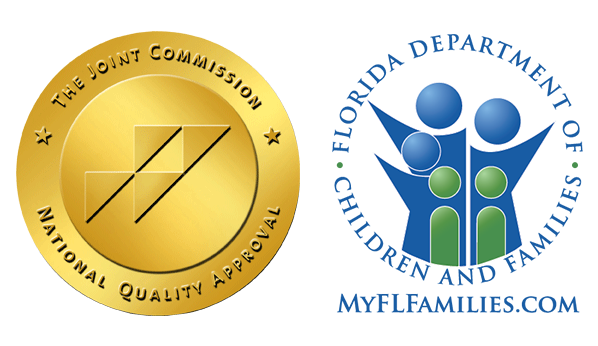For ages, alcohol has been a component of Western civilization. And we prefer to carry on that tradition because we enjoy life. I mean, isn’t a daily glass of booze heart-healthy? Are there ever too many glasses? We carefully laid out all the numbers and percentages in this blog article so you can determine whether or not you’re drinking more than is healthy from a scientific standpoint. But what specific effects does alcohol have on the body, including the heart? And why is there much more to the notorious hangover than meets the eye?
Alcohol Causes Organ Dehydration
Have you ever noticed that after a few spritzes of an alcohol-based disinfectant, your hands become dry? That’s essentially what alcohol does internally. Alcohol acts as a diuretic. The hormone that controls your fluid balance is upset by it. This fluid loss strains your organs, depletes your minerals, and has been shown to be a cause of arrhythmias. How freaky is that?
Alcohol Causes Blood Pressure to Rise
Drinking too much alcohol causes your blood arteries to constrict. As a result, your heart needs to work harder to pump blood throughout your body. You have a higher risk of heart disease and stroke as well as higher blood pressure as a result.
Alcohol Debilitates the Heart’s Muscle
Your heart is stimulated to circulate blood throughout your body by electrical impulses. Because alcohol lowers electrical conductivity, the heart beats less forcefully. Arrhythmia risk is again increased by reduced pumping function. Not to mention the damaging impacts on the proteins involved in the pumping action of the heart and the cardiac muscle cells.
Drinking causes the brain-heart link to go into overdrive.
The vagal nerve connects your brain to vital organs, including your heart and lungs. Alcohol also stimulates this nerve, which raises the possibility of atrial fibrillation and other arrhythmias.
Blood Thinners Like Alcohol
Similar to blood thinners, alcohol also acts as an anticoagulant. This may have a beneficial effect in certain circumstances. Usually, though, no. Without a certain doubt, if you currently use blood thinners for arrhythmias, you ought to consult your physician in that situation.
International research has consistently verified the connection, even though it may not be immediately apparent. Atrial fibrillation, the particular arrhythmia that FibriCheck screens for is one of the (temporary) arrhythmias that alcohol can cause. Alcohol usage over time exacerbates arrhythmias. These could eventually develop into an ongoing atrial fibrillation condition, possibly with the well-known effects of a stroke. However, drinking alcohol also negatively impacts your heart in an indirect way. For instance, In 16% of cases, drinking alcohol directly results in high blood pressure, and in 40% of cases, drinking alcohol severely exacerbates high blood pressure. Considering that two-thirds of patients with atrial fibrillation have elevated blood pressure, this is something to consider.
Effects of Binge Drinking
Do you abstain from alcohol for the entire week before rewarding yourself with a weekend binge? You might not go above your allotted weekly units. However, the impact on your body differs significantly as compared to distributing your consumption.
Did you know that your body needs an hour and a half to break down each unit of alcohol you drink? Your heart and organs, therefore, have a lot of processing to perform, whether it’s a night out or an afternoon in the beer garden. You are essentially building a “bottleneck” inside.
Then you have more concerns than just the dreaded hangover calling at your door. Most likely, You’ll also get a condition known to experts as “holiday heart syndrome.” Atrial fibrillation can occur during or up to 36 hours following a heavy drinking episode. It makes no difference if you drink frequently, infrequently, heavily, or moderately. All your heart does is respond to how much alcohol you’ve consumed in a short period of time.
Usually, atrial fibrillation goes away in a day or two. However, in roughly 1/4 of the cases, the fibrillations persist for up to a year. More so if you regularly indulge in binge drinking. For the record, “binge drinking” is defined by science as more than five standard units. Less than what you might think when the word “binge” is used.
The Advantages of an Alcohol-Free Life
Living an alcohol-free life is the purposeful abstention from alcohol during your daily life. A sober “I’ll just do without for a while” is rapidly replacing juicy stories about copious amounts of alcohol flowing during a party or pain in your body where it does not belong.
Without question, the advantages of abstaining from alcohol have caused many people to reconsider.
- You’re much more focused and have sharper vision.
- Your endurance has increased, and you have more energy.
- Your quality of sleep improves significantly, so you wake up feeling incredibly well-rested.
- Given how high in calories alcoholic beverages may be, you may see some weight reduction on the scale.
- You shine because your Skin has greater moisture.
Conclusion
After making the choice to get sober from alcohol, that invigorating, fit feeling you experience becomes a very effective preventative tool. It is no secret what damaging things alcohol does to your body, as we discussed in this blog article. If you or your loved one are struggling with substance abuse, please contact Beachcomber today. We are here for you!












